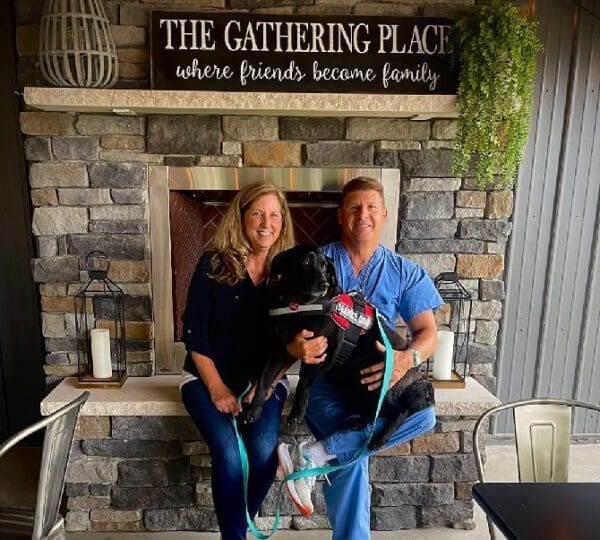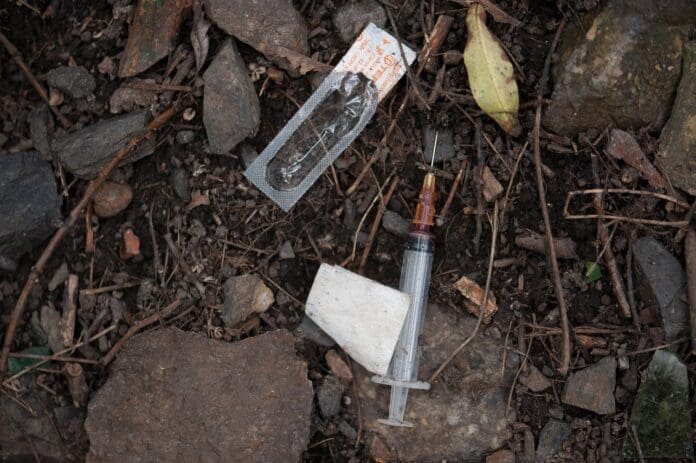Drug addiction and narcotic overdose remain critical issues in every corner of the Upper Ohio Valley and that is why thousands of residents in the Wheeling area have registered for a text overdose spike alerts system that’s been operational in Ohio County for the last four years.
It is also why Dr. Mike Tatro, a board-certified emergency medicine physician at East Ohio Regional Hospital, has taken the lead at the Martins Ferry facility’s drug and alcohol addiction unit. Tatro, a native of Wyoming who is a recovering alcoholic and a veteran of the U.S. Air Force, has been alarmed with the pace of overdose emergencies he has witnessed since the beginning of the year.
“It’s been alarming, that’s for sure,” he said matter-of-factly. “If we had a text system that notified people every time an overdose took place in this region, your phone would make a lot of noise every day of the week. Some days it wouldn’t stop making noise. Let that sink in.”
That’s not to make light of the alert systems in place, Tatro insisted.
“Listen, anything we can do to inform the people who are at rock bottom and looking for that next hit is a good thing because a system like that is saving lives. At least you hope it’s saving lives because it’s the obvious intent,” Tatro said. “Addicts listen to those alerts, too, because believe it or not, they’re not trying to die. They’re just trying to get through another day.
“I know these things because that’s what I do for a living,” he said. “And because I’ve struggled myself with alcohol addiction so that helps me even when it comes down to what a person is experiencing, too.”

No Single Face
There existed a time when a drug abuser was stereotyped in movies by their clothing, cleanliness, and even their speech patterns, but those days are long gone, Tatro believes.
That’s because the country’s current narcotics epidemic, one that began nearly 20 years ago with opiates, progressed to heroin and fentanyl, and now includes methamphetamines, knows no barriers when claiming new victims.
“Over the past month or so in our medical detox unit, we’ve seen business owners, we’ve seen PTO moms and executives, and we’ve had doctors, too. That’s because this is real life and it’s a statement about the reach of drug and alcohol addiction,” Tatro explained. “I’d say, at the point we are at now, that one in every eight people have suffered from some sort of drug or alcohol abuse. That’s how prevalent it is now.
“It used to be something like one in every 50 people who had some sort of issues with substances or alcohol, but that’s certainly not the case now. Plus, there are no stereotypes anymore. It’s everyone now,” he continued. “These are normal people and if you see a change in a friend’s or family’s personality, or if you see them withdraw from you and others, you may be seeing signs that the individual is experiencing issues.”

In Real Life
Tatro’s own son, Mason, found working in the emergency room at EORH an exhausting, unreal experience unlike anything he’d seem before and far worse than what he realized.
“After his first seven hours in the emergency department, he told me he was shocked at the amount of drug abuse that he saw in that brief amount of time,” he recalled. “If you’re not used to seeing what we deal with in this area, it’s shocking, and it was shocking to him. It’s daily, and we’re talking narcotics and we’re talking alcohol.
“When I say ‘drugs’ when I explain these issues, alcohol is definitely a part of what I’m talking about,” he said. “Listen, that kind of abuse isn’t taking place just here. It’s all over. But it is bad here, and I’ve been around the country. I’ve never seen it as bad as it is here.”
There is help available in Martins Ferry.
EORH’s medical detox program and Access Ohio’s 30-day residential rehabilitation programs for narcotics and alcohol have been in high demand since launching last December, and the phone number anyone can dial for more information is 614-367-7700.
“Recovery is a process. Most people don’t just wake up one day and say, ‘Ok, that’s it, I’m going to be sober now,” Tatro said. “If you can do that, more power to you, but most people have to learn how to be sober because they have to learn their own triggers.
“Once you’re committed,” the addiction doctor added, “it comes down to your triggers and how badly you want to be sober.”


